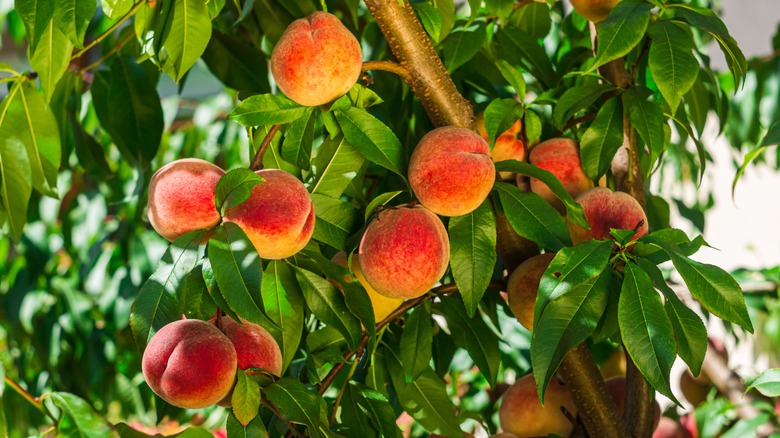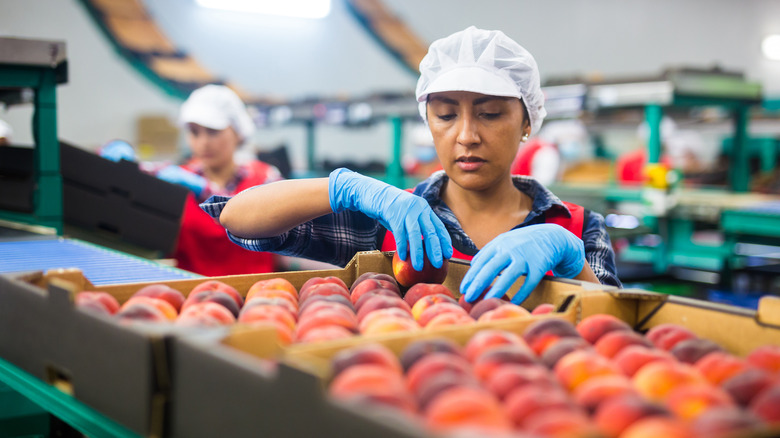Why It Might Be Harder To Find Good Peaches This Summer
Peach fans are about to get bruised. A freeze swept the Southeast in late March, causing a delay in this year's peach season. Jimmy Forrest of South Carolina's Dixie Belle Peaches explains that during May, farmers will usually have harvested 10% of the season's peach crop, via FreshPlaza. In June, he says, 50% of the crop grows, and the rest will be fresh and ready to pick by Labor Day. But, icy late-winter temperatures froze this year's growing season — literally.
According to Lane Southern Orchards, the times for optimal peach ripeness are consistently between April and October, but they vary by state. In Southern states like South Carolina and Georgia, it says, peach season lasts from late-May or early-June to mid-August — just in time for grilling. California, on the other hand, turns out peaches from late-June till mid-September. This is why the California peach market has been the cause of concern for many Southern peach farmers this season.
California, Forrest says, has a more consistent supply of peaches, even during years when an inopportune freeze doesn't happen to hit Southern farms. According to Statista, California led U.S. peach production in 2021 with a whopping 505,000 tons. Even though Georgia's nickname is literally "The Peach State," many consumers turn to California once the crème de la crème of the Southern peach crop runs out. This season's exacerbated shortage might cause massive cuts for Southern peach farmers' sales — and your local grocery store's peach stock.
What this means for stone-fruit fans
In light of the narrower-than-expected harvest, Jimmy Forrest of Dixie Belle Peaches tells FreshPlaza he predicts sale prices to run a little higher than consumers have seen in recent years. But, the freeze won't be the only reason your peaches might be harder (or pricier) to get. The Russia-Ukraine conflict has incited a huge wave of global food insecurity, making staples from wheat to sunflower oil largely inaccessible to the consumer market.
Jim Dudlicek of the National Grocers Association says nationwide labor shortages have stalled produce distribution, as there aren't enough people to "make the goods, move the goods and sell the goods," via Taste of Home. In November 2021, a record 4.5 million U.S. workers quit their jobs, reports CNN — one month after the end of peach season in many states (via Lane Southern Orchards).
In reality, there are a number of hurdles between you and the ripe peaches you're looking forward to. Keith Daniels of Carl Marks Advisors says of 2022's produce shortages, "It is a combination of factors: supply chain issues and driver shortages, scarcity of packaging, labor shortages at manufacturing and production plants as the workforce has not returned as facilities restarted from COVID closures," via Parade.

